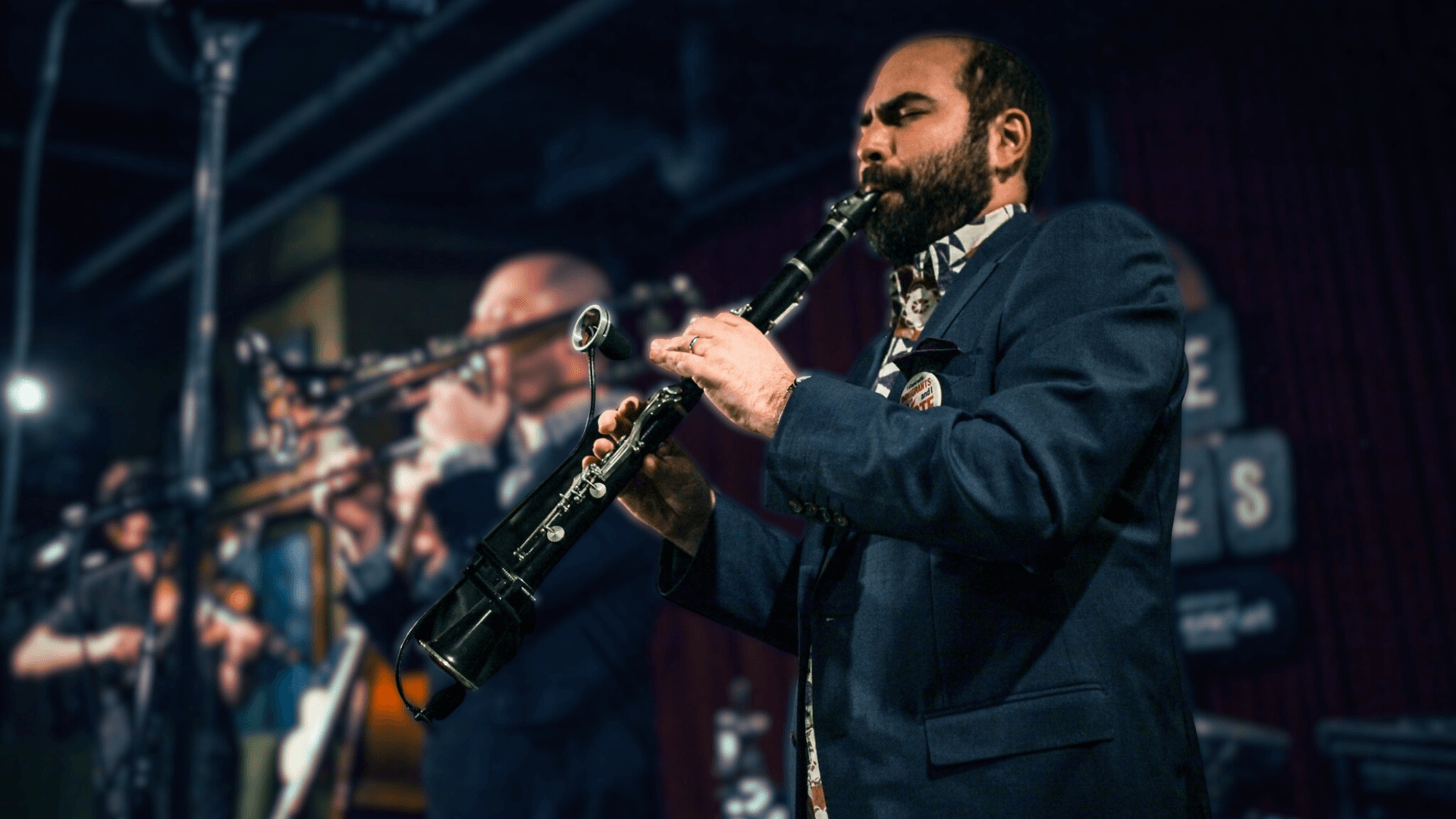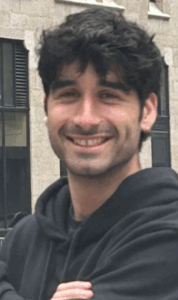In Boston, a klezmer musician is plotting a Jewish musical revolution
Nat Seelen, founder of The Boston Festival of New Jewish Music, aims to popularize a new generation of Jewish musicians

Nat Seelen, founder of The Boston Festival of New Jewish Music, performs at House of Blues in Boston. Courtesy of Nat Seelen
Boston has made some formidable contributions to American life — revolution; academia; the Kennedys; the Roomba — so it’s hardly surprising that Beantown’s status as a longtime hub of Klezmer music has received little attention.
However, the fifth edition of the Boston Festival of New Jewish Music – which opens Sunday, Oct. 5 – is not just the latest example of these proud Klezmer roots, but something more ambitious: Festival founder Nat Seelen told me his long-term aim is to make Jewish musical culture one of Boston’s trademarks.
Seelen, who is one-fifth of the Klezmer band Ezekiel’s Wheels, trained as a clarinetist at Boston’s New England Conservatory of Music, which in the late 1970s helped to revive American Klezmer music. (Eastern European Jewish immigrants established a Klezmer tradition in the US around the turn of the 20th century, but it withered when the Holocaust destroyed its links to Europe.) Hankus Netsky, one of Klezmer’s most celebrated musicians, sparked the revival as a student at the Conservatory by forming the Klezmer Conservatory Band in 1979, Seelen explained. The group has gone on to release 11 studio albums.
Several of Netsky’s students, including Michael Winograd and Dan Blacksberg, became well-known Klezmer musicians in their own right. The Conservatory held a 40th anniversary concert for the Klezmer Conservatory Band in 2019. “There was a line of people down the block in the freezing winter cold,” Seelen recalled. “Security guards ended up having to set up at the last minute a live stream, before anyone was used to doing that. And it was really powerful.”
The concert was both a resounding success and a proof of concept: enthusiasm for esoteric Jewish music in Boston, where Berklee College of Music, Boston University and Harvard have well-established Klezmer and Yiddish musical programs, had not declined.
In 2021, Seelen founded the Boston Festival of New Jewish Music, inspired by the city’s musical talent (and concert-goers) — and by the pandemic. “We could make use of the fact that there are so many incredible musicians who are based in Boston — who studied here, who teach here, or who are just professional musicians working here — who were suddenly not on tour and could just come play a concert without having too much else going on,” he said.
The festival opened Oct. 6, 2021 with a performance by Netsky protegé Zach Mayer. Much of the first year took place during the COVID pandemic, so the spontaneous virtual component of the 2019 anniversary concert was good practice for Seelen and his staff. Once restrictions ended, Seelen phased out the festival’s streaming services in order to solidify the bond between Boston’s residents and the nascent festival — that is, he wanted in-person connections. “Now, it’s become much more of a Boston thing to do,” he said. “And I’m pretty happy with that.”
The festival’s official title — the Boston Festival of New Jewish Music (emphasis mine) — reveals Seelen’s other principal motivation: He wants it to be a launching pad for new approaches to Jewish musical culture. “We interpreted Jewish culture pretty broadly,” said Seelen, adding that, in addition to Klezmer, the festival has featured Mizrachi and Ladino works, Hebrew-language performances, and even “instrumental music that doesn’t have any language at all other than, you know, their instruments playing.”
Though the ripples of the Israel-Hamas war have infiltrated almost every aspect of Jewish and Israeli life — just last week, for example, a London electronic music festival cancelled a set by an Israeli DJ, following a blog post by a pro-Palestinian group that described the artist as a “linchpin” of Israeli nightlife — the festival has not faced similar pressure. Seelen told me that’s partly because the festival isn’t bankrolled by the Israeli Embassy, nor by any of the Israeli government’s cultural programs, but instead by an array of New England-based nonprofits. He added that there’s a natural affinity between the “Yiddish space” and those liable to be more critical of the Israeli government. “There’s probably a fair number of people who would be out protesting, but instead they’re at our concerts,” he said.
As for what’s next: Seelen wants the festival’s musicians to go on tour. “As a musician, when you create a new work and play it once, it’s powerful and beautiful and impactful,” he said. “But when you do it every night for a month in a different city? That’s what really makes an impact.”
Sunday, Oct. 5, is opening night of the 2025-6 season of the Boston Festival of New Jewish Music, at the Multicultural Arts Centre in Cambridge, Mass.
















